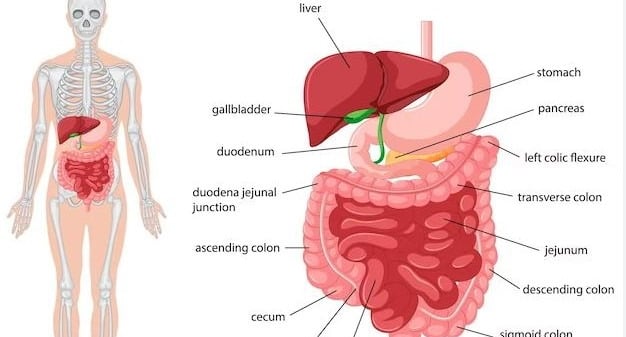Digestive System: How It Works and What Causes Failure
Explore how the digestive system works and what causes its failure. Understand the importance of digestive health for overall well-being. #digestive system.


Introduction
The digestive system plays a vital role in our overall health and well-being. It is responsible for breaking down the food we consume into nutrients that our bodies can absorb and utilize. However, like any complex system, it is susceptible to failure. In this article, we will explore how the digestive system works and what can cause it to malfunction.
The Digestive Process
The digestive process begins in the mouth, where food is broken down into smaller pieces by chewing and mixed with saliva. It then travels down the esophagus and into the stomach, where it is further broken down by stomach acid and enzymes. From the stomach, the partially digested food enters the small intestine, where the majority of nutrient absorption takes place. The remaining waste then moves into the large intestine, where water is absorbed, and finally, it is eliminated as feces.
Throughout this process, various organs and structures, such as the liver, gallbladder, and pancreas, play crucial roles in producing digestive enzymes, bile, and hormones that aid in digestion and absorption.
Potential Causes of Digestive System Failure
While the digestive system is designed to function efficiently, several factors can lead to its failure. Here are some common causes:
1. Poor Diet
A diet lacking in essential nutrients, fiber, and hydration can disrupt the digestive process. Consuming excessive amounts of processed foods, saturated fats, and sugar can lead to constipation, diarrhea, and other digestive disorders. It is important to maintain a balanced diet rich in fruits, vegetables, whole grains, and lean proteins to support a healthy digestive system.
2. Stress
Stress can have a significant impact on the digestive system. It can lead to increased production of stomach acid, which can result in heartburn, ulcers, and other gastrointestinal issues. Additionally, stress can disrupt the natural contractions of the digestive muscles, causing constipation or diarrhea. Managing stress through relaxation techniques, exercise, and adequate sleep can help maintain a healthy digestive system.
3. Infections and Diseases
Infections, such as gastroenteritis caused by viruses or bacteria, can result in inflammation and damage to the digestive system. Chronic conditions like irritable bowel syndrome (IBS), Crohn's disease, and ulcerative colitis can also cause digestive system failure. Seeking medical attention and following the prescribed treatment plan is crucial for managing these conditions and preventing further damage to the digestive system.
4. Medications and Lifestyle Factors
Certain medications, such as nonsteroidal anti-inflammatory drugs (NSAIDs), antibiotics, and oral contraceptives, can have adverse effects on the digestive system. Additionally, smoking, excessive alcohol consumption, and lack of physical activity can contribute to digestive system failure. It is important to be aware of the potential side effects of medications and make lifestyle choices that support a healthy digestive system.
Conclusion
Understanding how the digestive system works and what can cause it to fail is essential for maintaining good digestive health. By adopting a healthy diet, managing stress, seeking appropriate medical care, and making lifestyle choices that support digestion, we can promote the proper functioning of our digestive system and enjoy optimal overall health.
